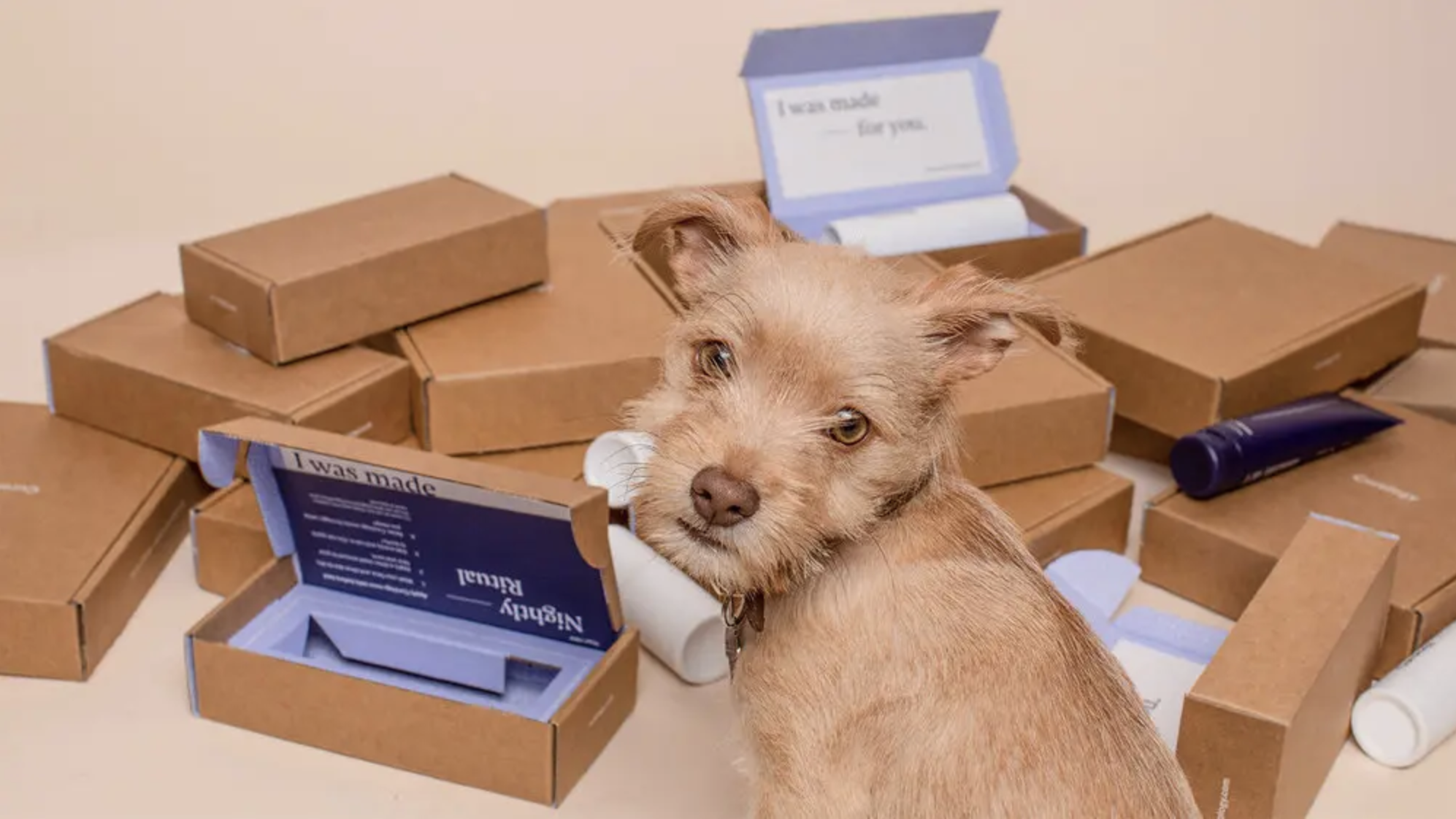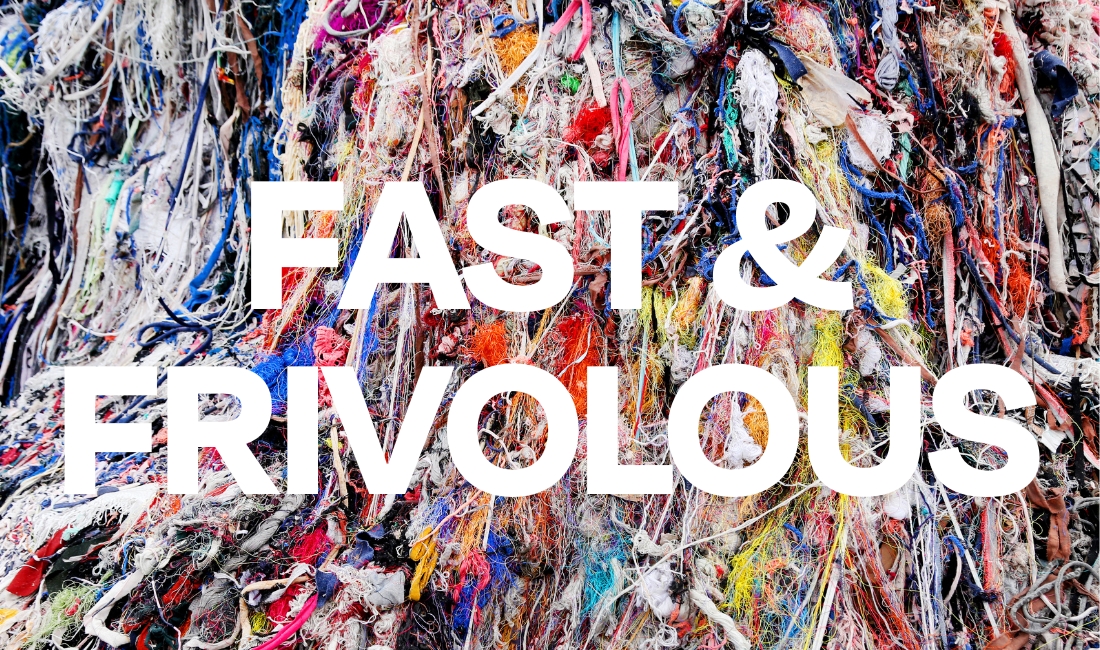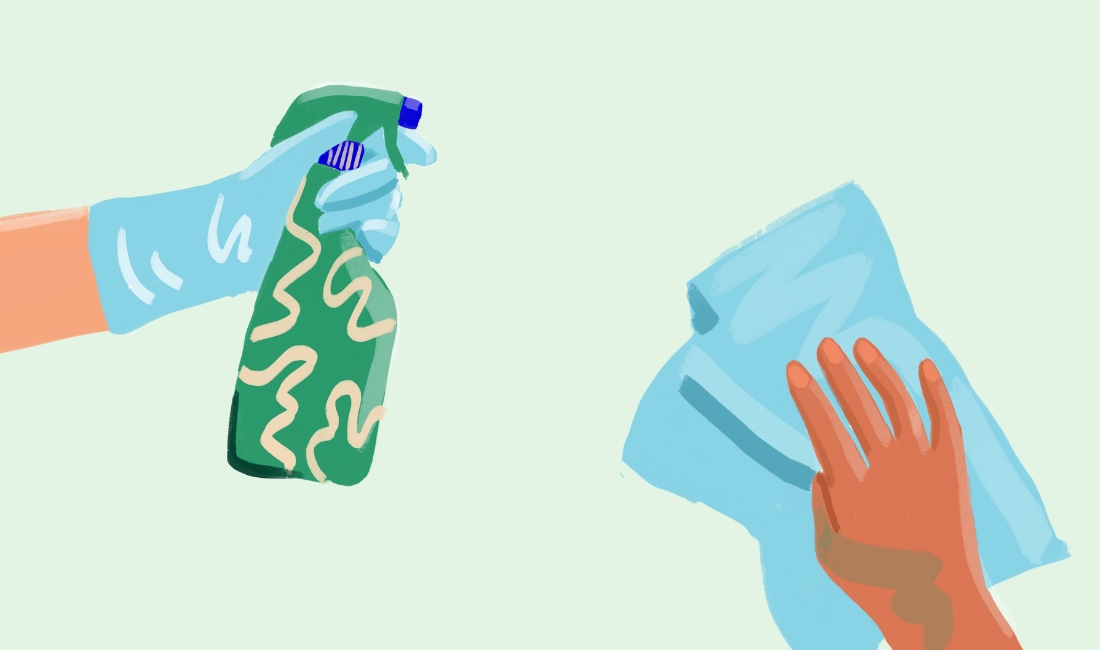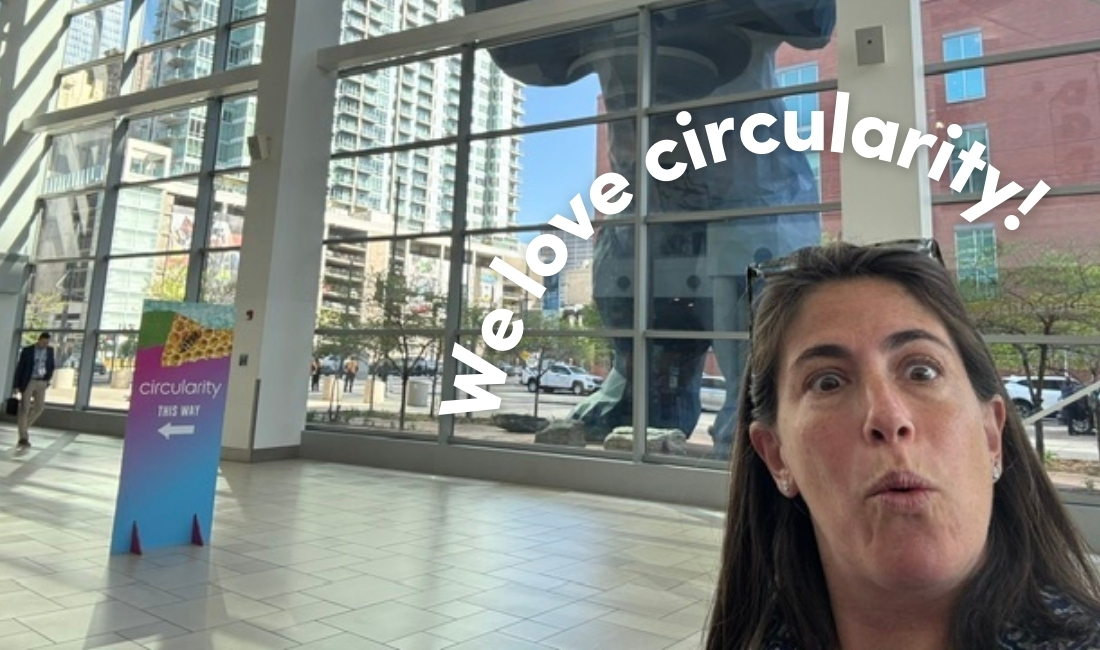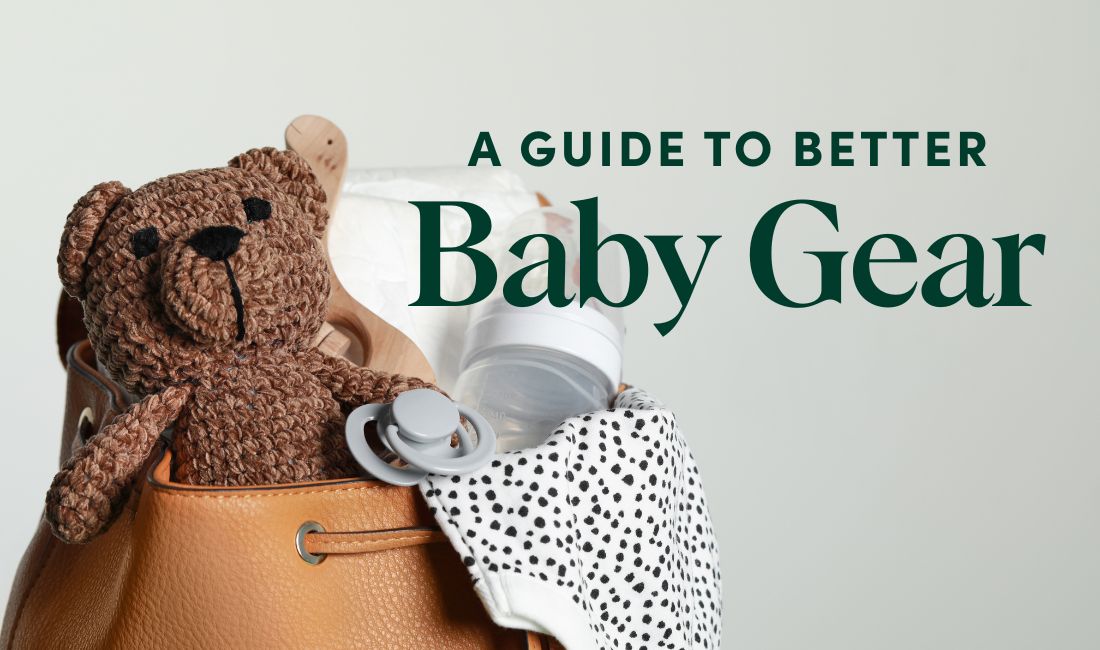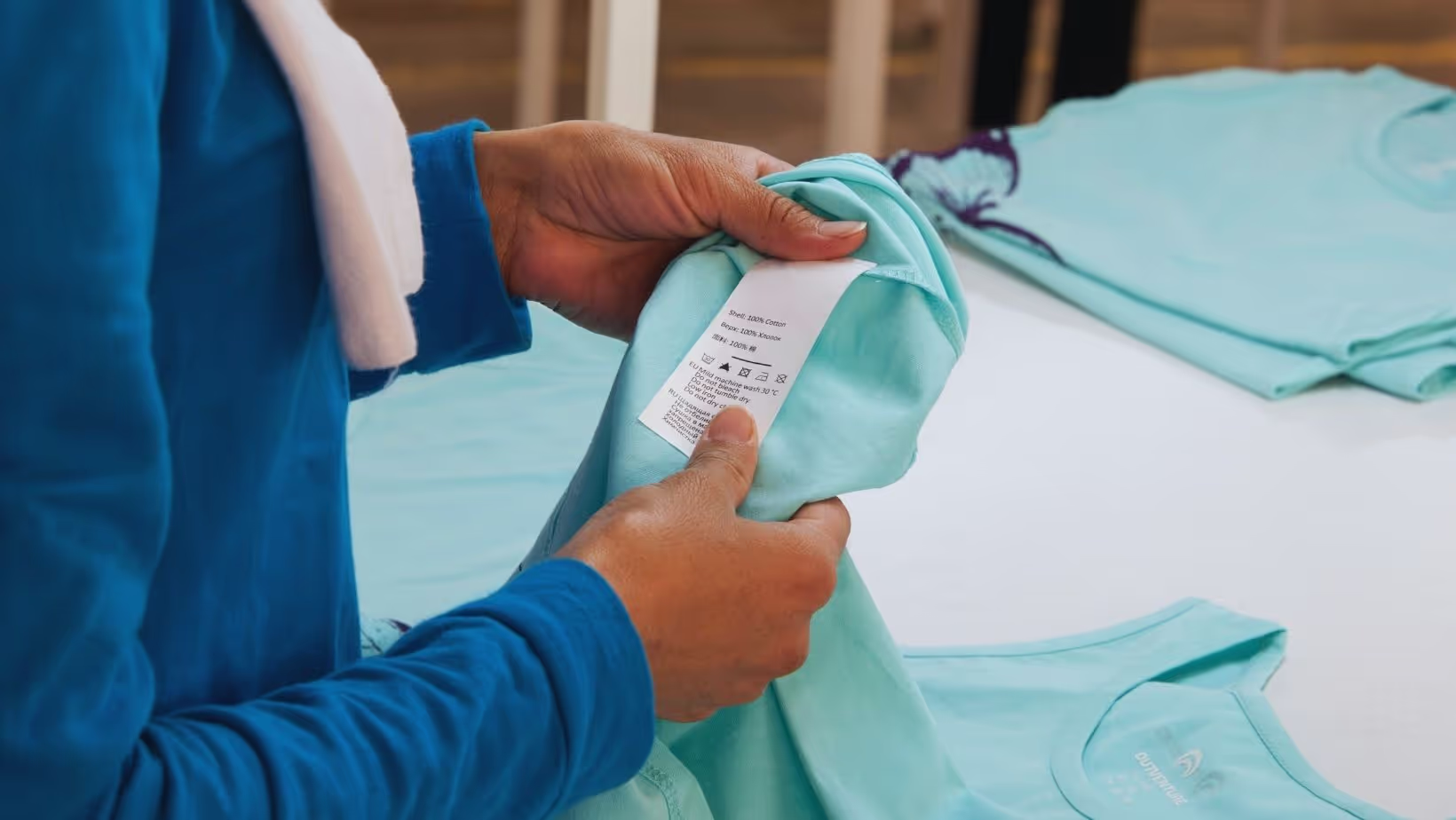The Journey from the Back of the Closet to a Second Life

A couple months ago, my friend came over for a walk and she showed up in some pretty cool Lululemon leggings. When I complimented her OOTD, she told me they were from Lululemon’s Like New program, which is their line of gently used secondhand clothing. As sustainable as I try to be, I couldn’t quite get on board…I would be comfortable getting a secondhand coat or maybe a loose-fitting t-shirt, but lightly used leggings that sit tightly on my bare skin that some stranger has worn? No thank you.
But, since then, I have had a big mindset shift. #Growth. While at the Trellis Circularity conference last month, I was contacted by someone I had never met or heard of, which I immediately categorized as spam. The note was an invitation to join a conference-related tour of something called the Tersus factory. Even though I didn’t recognize the name, something about this email made me give it a second glance – and thank goodness I did: 24 hours later, I was on one of the coolest tours I’ve taken since the Friend’s Pop-Up Experience in Boston circa 2019. So, off I went with Peter, Matt, Luke and Kindra on an eye-opening tour.

So, what is Tersus?
Tersus is the technology and operational partner for resale, recommerce, and circular economy efforts from brands we know and love, such as Lululemon, The North Face, Patagonia, Arc’teryx, New Balance, and many others. Tersus uses over 100 thousand square feet in Englewood, CO to clean, fix, and ship second-hand gear throughout the U.S. and Canada. According to my fabulous tour guides, they take in two types of items: those that are returned within the standard 30-day window of purchase (that can’t be put back on the shelf as “new”) and those that the brand buys back after 2+ years of use through a takeback or trade-in program. They receive the product, sort it, grade its condition, clean it, repair it, put it on a shelf, and ship it to the customer. This factory, quite literally, does some of the dirtiest work. As a mix of industrial laundry meets repair shop, this factory avoids the mountains of textile waste in our backyards and abroad.
In practice, here’s how it works: Kelly has worn her Stio Jacket countless times - it was one of the first things she ever bought from them and has skied one too many seasons in it. She just got a new one from her mom on her birthday. She sends the old one back via Stio Second Turn and it ends up at the Tersus Factory. Meanwhile, Harriet in Birmingham, AL is going skiing for the very first time with her boyfriend’s family and wants to look “cool” without spending the money on a brand new jacket. She hears Stio is a cool company, shops their Second Turn site and ends up with Kelly’s jacket after it’s been repaired and sanitized by Tersus. But, no one even knows Tersus exists, even though they fuel the entire operation behind the scenes. When someone buys a refurbished product, it’s meant to look like it came from the actual store factory.

Sounds Water-Intensive, Right? Actually, No!
My first thought was: Must be pretty water-intensive to do all that cleaning and sanitizing. Think again. Tersus uses an innovative liquid carbon dioxide (LCO₂) cleaning system that increases a garment’s useful life and maximizes the positive environmental impact of any rental or re-commerce program. In the past year, 165 tons of carbon emissions and 1.3 million gallons of water were saved versus conventional washing. Here’s how the tech actually works: The cycle begins by injecting LCO₂ into a basket of clothes. Throughout the cycle, LCO₂ is continuously cycled through a filter to ensure textiles are exposed to a clean batch of solution. In as little as 45 minutes, the process is complete. The best part? You can put any and all materials in the basket at once - even shoes with tags still on them won’t be harmed in the process and will look as good as new in the end. Truly, my Lulu fears were gone – I’d wear anything secondhand if it came from Tersus.
How else can this tech be used?
One of the coolest aspects of what Tersus does is their firefighting solutions. Firefighting gear washed in traditional water wash methods only has a ~56% removal rate of carcinogens, whereas gear cleaned with this LCO₂ process showed a removal rate of 98% after a blazing fire or equally rough elements. The factory also recycles down from used gear and has recycled 21,000 lbs of post-consumer down, which could make up to 100,000 new down jackets. This was especially cool for me as someone who isn’t really “down” with the goose/duck down process in the first place. Secondhand down is kind of a game changer.
Tersus in Action
Next time you’re in the market for a new product, consider saving some money & environmental guilt and buy from one of these companies’ programs (plus many more).
Through Stio Second Turn, you can send in up to ten of your gently used Stio items and receive a reward of up to 25% of the original retail value of your products.
New Balance Reconsidered lets you buy New Balance products that are either gently used or unsellable as brand new for cosmetic reasons. You can also trade in gently used men’s or women’s footwear in exchange for a voucher up to 25% of the original MSRP (manufacturer’s suggested retail price). Accidentally send in an item that was too damaged? They’ll donate it on your behalf to Soles4Souls.
Patagonia Worn Wear is Patagonia’s buy-back program which, much like New Balance, will accept used Patagonia clothing and gear in exchange for up to 25% of the MSRP in credit to use in-store or online at Patagonia or Worn Wear. If the gear isn’t eligible after all, they’ll either send it back to you or recycle it.
Lululemon’s Lululemon Like New will take your gently used gear, refresh it, and put it up for purchase on their online resale shop. Buy from the resale shop for more affordable, secondhand apparel, or turn some of your own in in exchange for store credit.
Everlove by Ergo Baby invites you to return your pre-loved Ergobaby carriers with a couple cute twists. When you send back your carrier, you have the option to share your babywearing story with the future owner of your carrier. When your carrier is approved for resale, you’ll have another choice: a $50 gift card to Ergobaby.com for you, a $20 gift card to a retailer of your choice, or a $30 donation made on your behalf to Baby2Baby.
Some Other Circular Technology Innovations
The Danish startup VAER upcycles textile waste like workwear, tablecloths, and jeans into stylish sneakers and hats. They also started a nonprofit, Re:Wair, which provides upcycling workshops to teach and inspire others about the power of upcycling. Teamwork makes the dream work!
Fancy car lovers unite: Biodesign company Modern Meadow partnered up with Mercedes-Benz AG to use INNOVERA™, a leather alternative, for the CONCEPT AMG GT XX’s seats (in addition to recycled racing tires, plant-based proteins, and biopolymers).
Excess Materials Exchange is like a digital matchmaker for the circular economy. By giving materials lifecycle profiles and digital identities, the platform facilitates transactions that connect companies that have excess materials to reuse partners.
The Swedish textile recycling firm Syre recently announced it would collaborate with Gap, Houdini Sportswear, and Target, providing recycled polyester to the companies working toward a more circular fashion industry.
Subscribe now to continue reading.
(16% discount)
• Access to unlimited articles
• Sustainable product guides & recommendations
• Weekly newsletters
Already a member? Log in.
